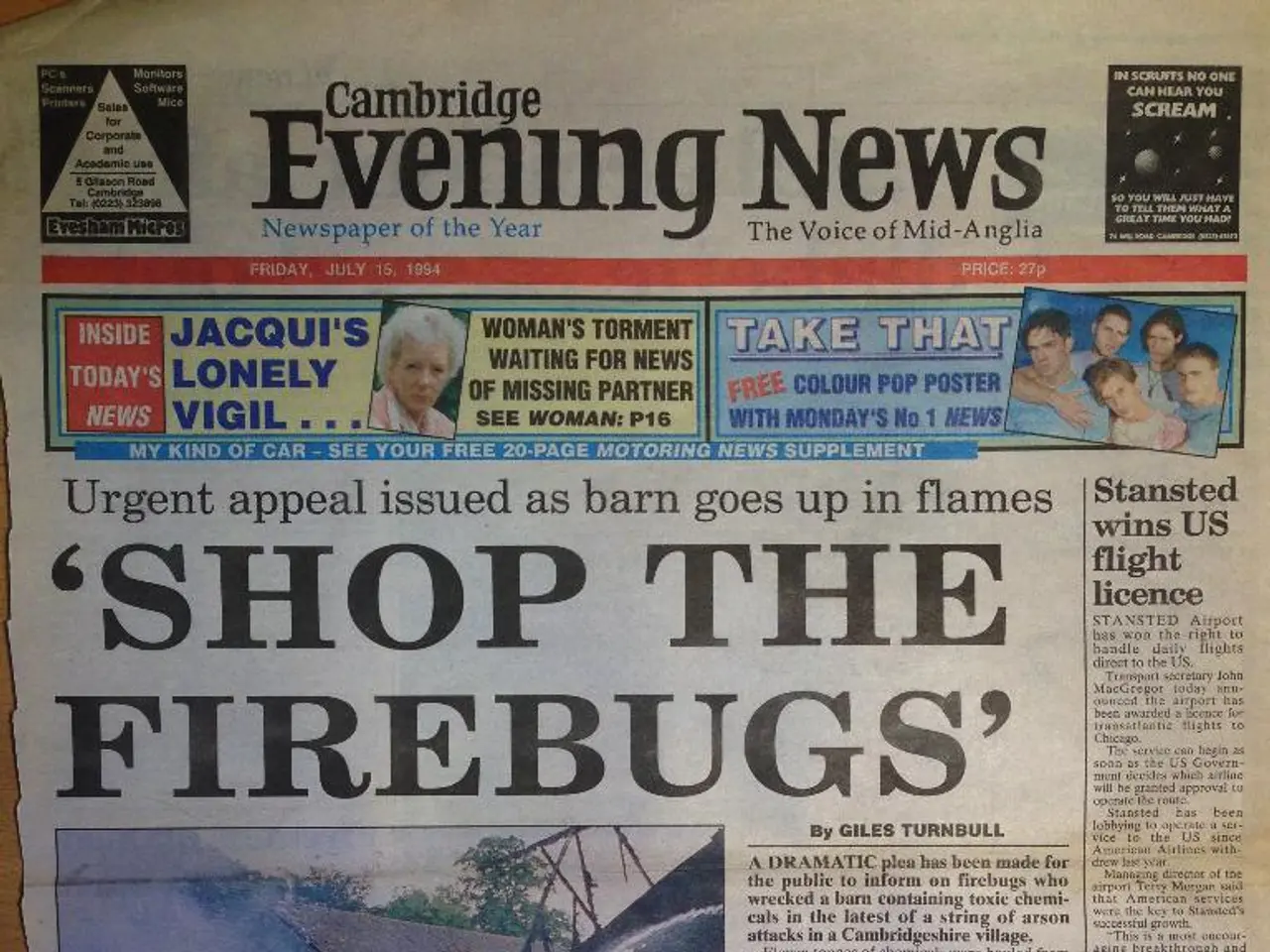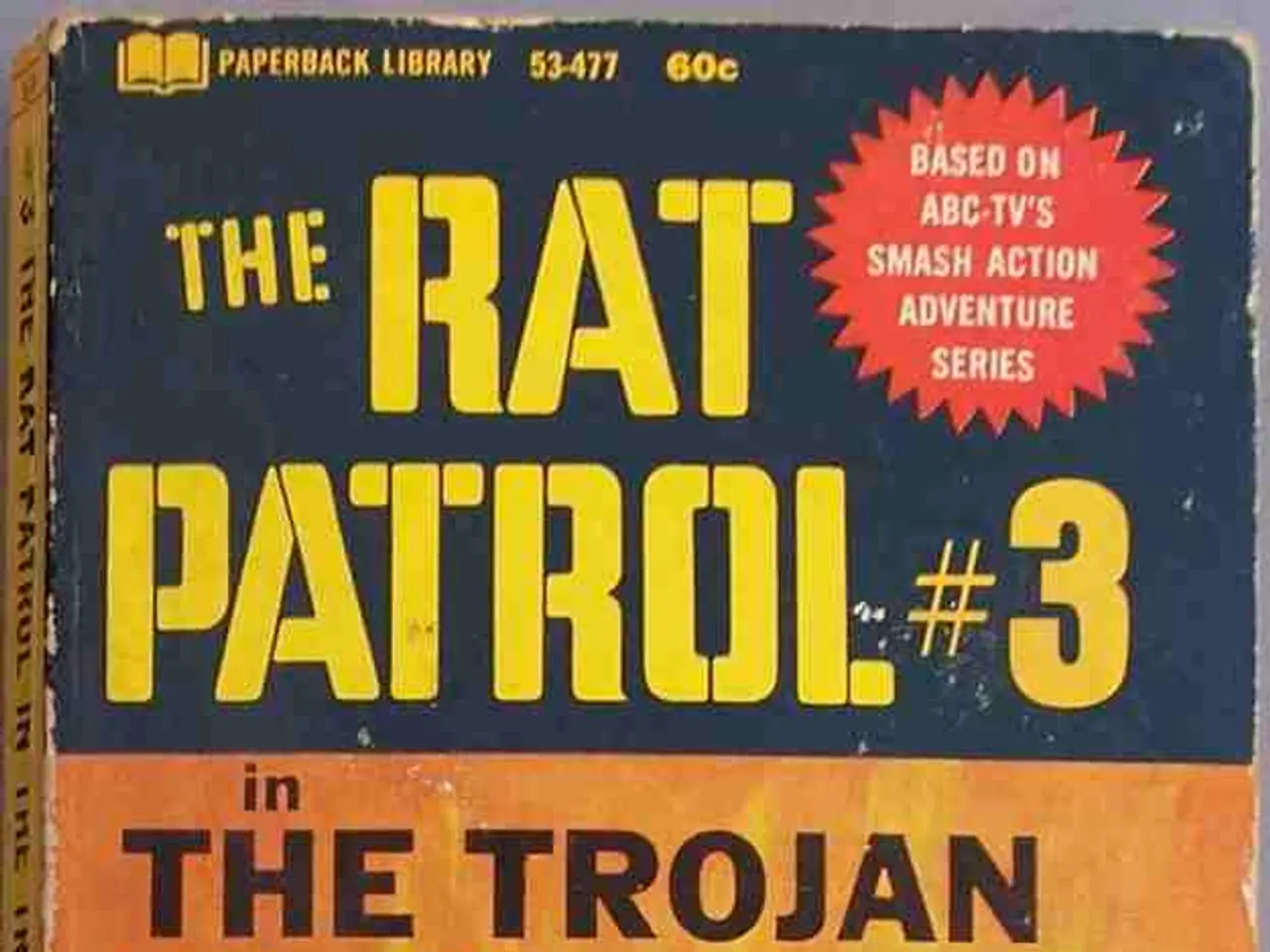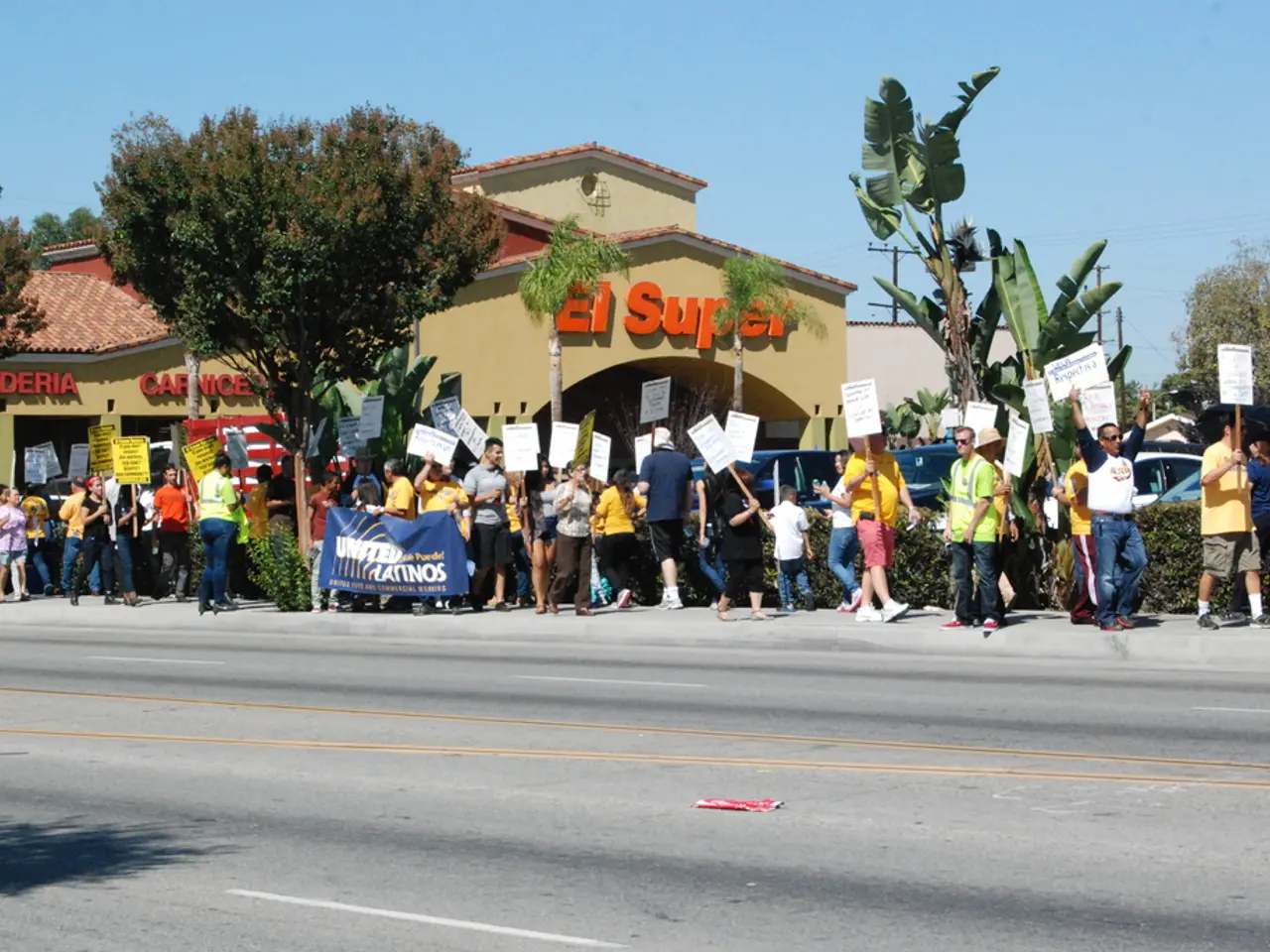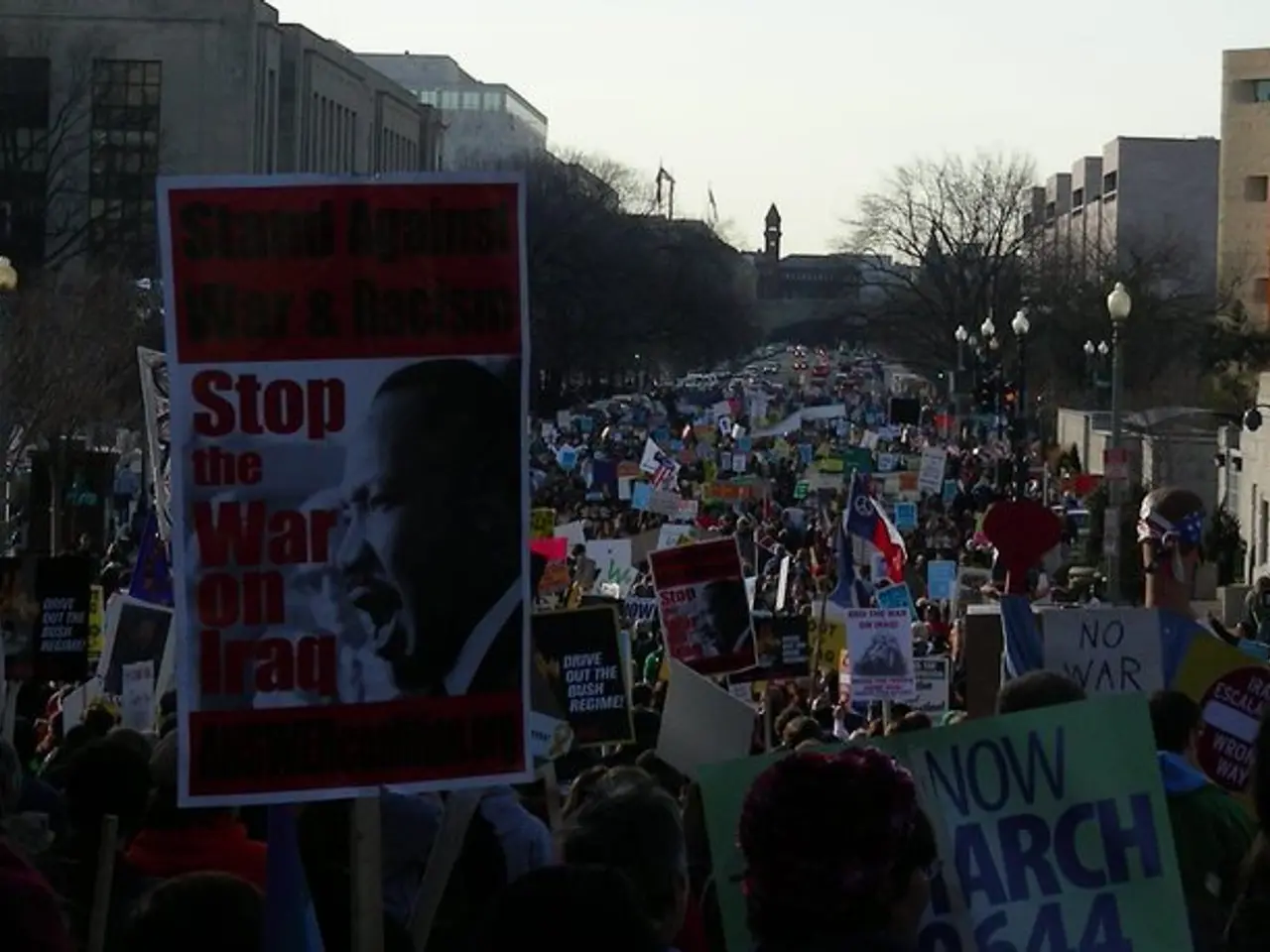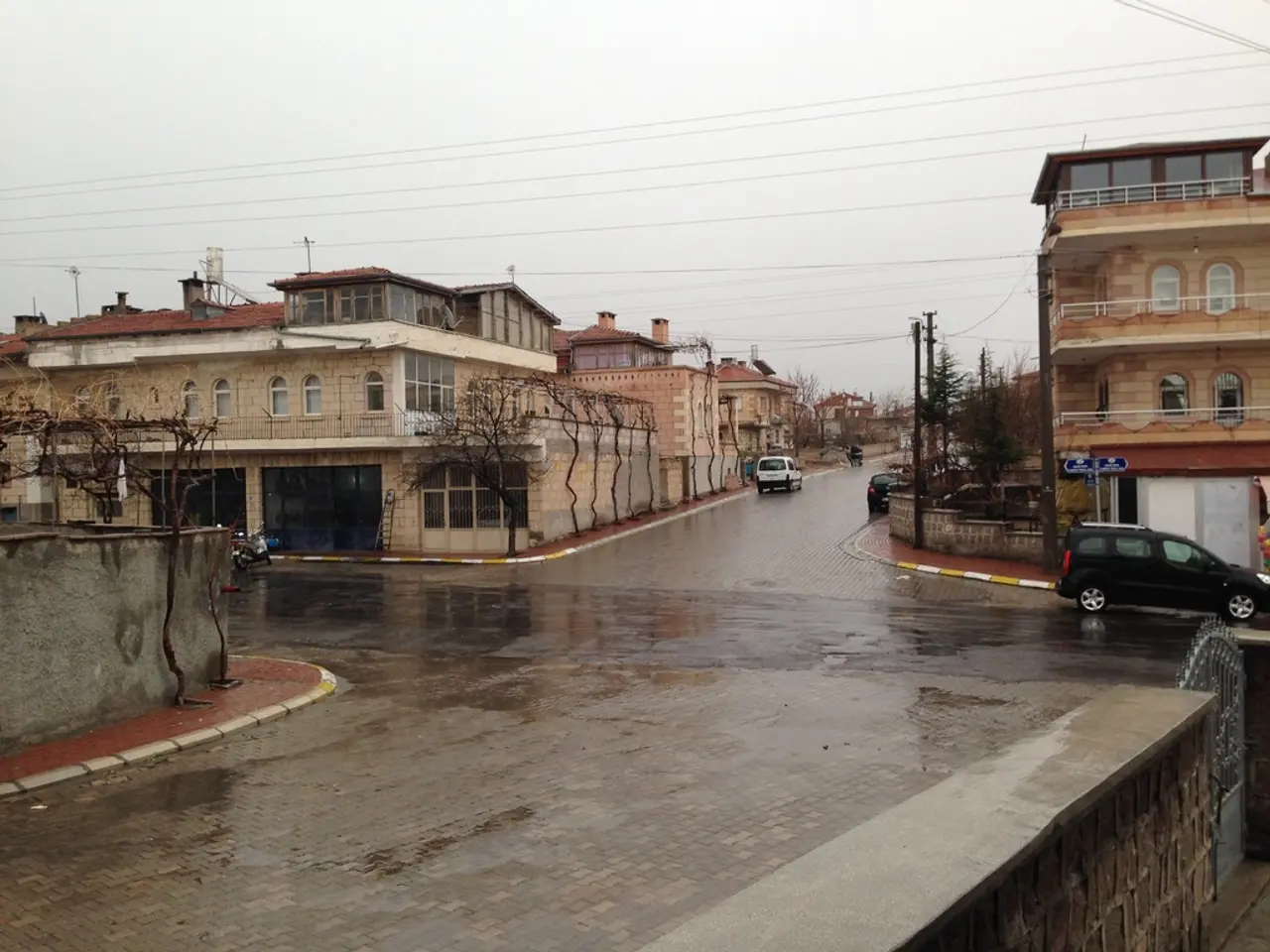Investigator sought for comprehensive examination as per Lindh's call
The city of Solingen, Germany, was once again shaken by a tragic event in 2024, when a residential building housing a Bulgarian family of Turkish origin was targeted in an arson attack. The incident resulted in the loss of four lives, including two children and their parents.
The perpetrator, Daniel S., a 40-year-old German man with a history of drug addiction, pleaded guilty to four counts of murder, arson, and an additional machete attack. On July 30, 2025, the Wuppertal District Court sentenced him to life imprisonment with subsequent preventive detention.
While the motives behind the attack are not explicitly stated as racist or right-wing extremist, Daniel S. is described as an unemployed individual without any publicly confirmed ideological motives. However, it is important to note that documented findings of Nazi literature, racist propaganda, right-wing extremist content on electronic devices, a poem in the garage, and extreme online search queries were initially disregarded as evidence of a racially motivated act by the public prosecutor's office.
The investigation into the arson attack required multiple additional police inquiries during the trial, as new details repeatedly came to light. However, there is no evidence of a deliberate cover-up of the motives or the crime by authorities.
The demands of the 2nd Parliamentary Investigative Committee regarding racist, dehumanizing acts were not sufficiently implemented in the case of the arson attack. The committee, which was tasked with raising awareness and providing training for law enforcement agencies and justice, considering the perspective of the victims, and incorporating the experiences of victim support services, has called for transparency in the entire procedure, an independent investigation of possible racist or right-wing extremist motives, and that such handling of evidence must not have a place in a rule of law state.
Justice does not end with a verdict. It begins with truth, transparency, responsibility, and the firm will to learn from the failures of the past. The events in Solingen serve as a reminder of the importance of addressing racist and dehumanizing acts more thoroughly, not just in individual cases, but in the regulations and guidelines for their practical implementation as well.
It is crucial to distinguish this attack from unrelated incidents in Solingen, such as a 2025 stabbing attack by a Syrian suspect with claimed jihadist links, which reflect different circumstances and motivations. Historical far-right arson attacks in Solingen, notably the 1993 attack that left a wound that has not healed to this day, are documented but distinct from the 2024 case.
In the future, it must be the task of the parliament and the Federal Ministry of the Interior to monitor, evaluate, and promote the implementation of the tasks of the PUA and the lessons learned from the NSU. Solingen must not remain the city of repeated remembrance of deadly racism, but Wuppertal and Solingen must become cities of decisive action and sustainable processing. The conviction of the perpetrator is a step towards justice, but it is not the end.
In light of the 2024 arson attack in Solingen that claimed four lives, the demands of the 2nd Parliamentary Investigative Committee regarding racist, dehumanizing acts need to be thoroughly addressed, particularly in the case's implementation of regulations and practical guidelines. The committee, tasked with raising awareness and providing training for law enforcement agencies and justice, has called for transparency in the entire procedure, an independent investigation of possible racist or right-wing extremist motives, and ensuring such handling of evidence does not occur in a rule-of-law state. Additionally, the general news and crime-and-justice sectors should focus on policy-and-legislation reforms that aim to prevent similar incidents in the future, as politics plays a significant role in shaping these regulations.
